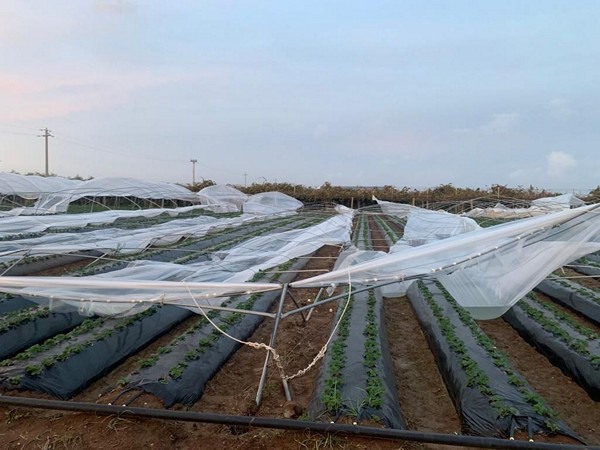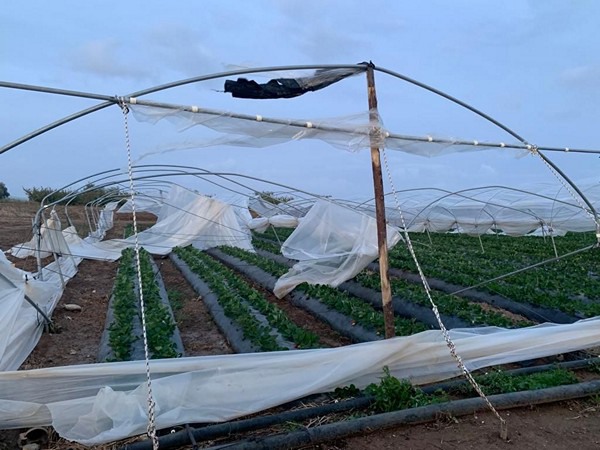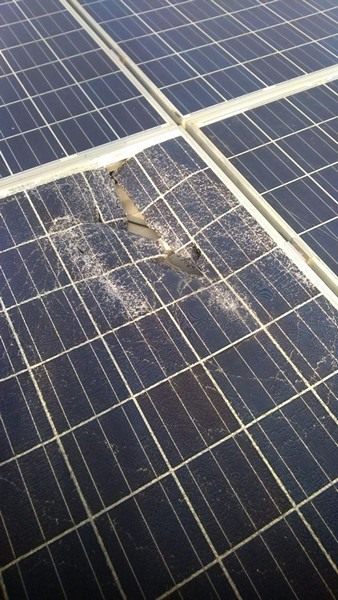Temperatures are not yet very low, but we need to restore the greenhouses damaged by the weather. Now that the emergency is over, the time has come to replace plastic films, but they seem difficult to find. FreshPlaza talked about it with a young producer from Metapontino, Claudio Oliva.

"The time for films is over and all orders had already been processed. Large companies do not produce thermoplastic films all year round, finding plastic with specific technical characteristics is therefore very difficult. When it comes to strawberry cultivation, for example, what needs to be considered is the thickness of films (0.13/0.15/0.20), diffused/direct light and the anti-drip effect. The latter is very important especially to me: the water generated by humidity does not fall directly on plants, but drains laterally thus avoiding scalding, botrytis, grey mold and other phytopathological problems."
"Producers delivered all they had in warehouses, but it probably will not be enough. The solution is to make do with generic plastic rather than keeping plants uncovered. I have just finished fixing the greenhouses trying to salvage as much material as possible, now I will have to find some suitable plastic, but it seems the thickness I usually employ is not available. Luckily the whirlwind only hit one of four hectares of Sabrosa strawberries for over €20,000 in total."

 Salvatore Pecchia, agronomist from Asso Fruit Italia, commented that "it was mostly the stone fruit and strawberry covers that were damaged, for around €700,000 in total (for PO partners)."
Salvatore Pecchia, agronomist from Asso Fruit Italia, commented that "it was mostly the stone fruit and strawberry covers that were damaged, for around €700,000 in total (for PO partners)."
"90% of damaged greenhouses were used for strawberries. In addition, photovoltaic plants and various agricultural equipment were also damaged. We registered problems in kiwifruit orchards as well, as the strong wings broke branches generating the loss of a lot of produce. We fear there will be more damage caused by the cold as well as delays in production, but we are still in time to recover, as the current temperatures are still above the seasonal average."
